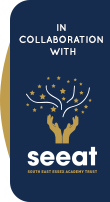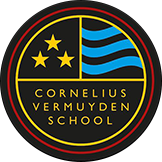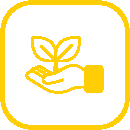PE
Intent

Career Opportunities in PE
The study of Physical Education allows you to develop skills that could lead to pursuing many different career choices. Some examples of careers you could choose from include PE teaching, sports science, physiotherapy, sports coaching, sports lecturing, sports psychology, personal training, sports nutrition, and many more. Physical Education lessons teach students how to look after their well-being—physically, mentally, and socially. The good practices learned in looking after yourself will stay with you for the future, regardless of whether PE is specifically related to your chosen career.
Year 7 Curriculum plans
| Term | What are we learning? | What Knowledge, Understanding and Skills will we gain? | What will excellence look like? | How will these be assessed? |
|
Autumn |
Invasion games Rugby Basketball Hockey Football Netball
|
Students will be able to understand, use and recall the following knowledge relating to various invasion games: Principles of attack and defence using a range of strategies Finding and using space Use of sport specific terminology Application of modified game rules Skills: Passing/Receiving Ball handling/ control Footwork Attacking Defending/ Tackling Dodging | Pupils will be fully engaged in lessons demonstrating the skills in a welcoming atmosphere. Students will show strong Teamwork Resilience Performing Wellbeing Respect Motivation Inclusion Organisation Students will also be given the chance to practise a skill and perform it in a competitive environment. | Students will be assessed individually and graded against the AQA GCSE PE Criteria receiving a scaled score out of 25 marks. |
|
Autumn |
Theory
|
To understand skeletal & Muscular system, functions of the skeleton & Effects of exercise. Skills: Applying knowledge of our bodies and the impact it has on our sports performance. | Pupils will be fully engaged in lessons; asking and answering questions. Students will be able to link theory learning to practical sporting performance. Use of mini plenaries will allow pupils to discuss their understanding and self-evaluate to enable progress. Students will show Resilience Wellbeing Respect Inclusion Communication Organisation | Students will be assessed individually through a 1-hour assessment paper and graded against the AQA GCSE PE Criteria receiving a score out of 25 marks. |
|
Spring |
Outdoor adventure activities- Climbing Problem solving Map Reading/ Orienteering
|
Students will be able to understand, use and recall the following knowledge: Process of how to solve problems using a set of resources. How to work effectively with others. To use feedback to improve performance. Skills: Traversing Harnesses Safety Ropework and knots Map reading Problem solving | Pupils will be fully engaged in lessons demonstrating the skills in a welcoming atmosphere. Students will show strong Teamwork Resilience Wellbeing Motivation Communication Problem solving Organisation Students will also be given the chance to practise a skill and perform it in a competitive environment. | Students will be assessed individually and graded against the AQA GCSE PE Criteria receiving a scaled score out of 25 marks. |
|
Spring |
Racket sports- Table tennis Short Tennis Badminton
|
Students will be able to understand, use and recall the following knowledge: Shot selection in a range of competitive contexts Use of deception and more complex strategies to outwit opposition Understanding of sequences of play Understanding of terminology and accurate Application of game rules. Skills: Grip and stance Push-Backhand/Forehand Serve | Pupils will be fully engaged in lessons demonstrating the skills in a welcoming atmosphere. Students will show strong Performing Wellbeing Motivation Resilience Respect Students will also be given the chance to practise a skill and perform it in a competitive environment. | Students will be assessed individually and graded against the AQA GCSE PE Criteria receiving a scaled score out of 25 marks. |
|
Spring |
Health and wellbeing- Fitness Cross Country Trampolining
|
students will be able to understand, use and recall the following knowledge: Skill replication in a range of fitness activities. Use a range of health and fitness terminology. Understanding of the way the body responses to exercise using appropriate terminology. Lead warm up & cool down routines. Skills: Circuit movements Tests for components of fitness Running for speed/endurance | Pupils will be fully engaged in lessons demonstrating the skills in a welcoming atmosphere. Students will show strong Performing Wellbeing Motivation Resilience Respect Inclusion Students will also be given the chance to practise a skill and perform it in a competitive environment. | Students will be assessed individually and graded against the AQA GCSE PE Criteria receiving a scaled score out of 25 marks. |
|
Summer |
Striking and Fielding Rounders Cricket Softball
|
Students will be able to understand, use and recall the following knowledge: Applying techniques in a range of competitive contexts Using sport specific terminology Use strategies to outwit opposition And apply game rules as a performer and official Skills: Batting Bowling underarm Bowling Over Arm Long barrier | Pupils will be fully engaged in lessons demonstrating the skills in a welcoming atmosphere. Students will show strong Teamwork, Performing, Resilience, Inclusion, Motivation, Communication, Students will also be given the chance to practise a skill and perform it in a competitive environment. | Students will be assessed individually and graded against the AQA GCSE PE Criteria receiving a score out of 25 marks. |
|
Summer |
Athletics
|
Students will be able to replicate skills in a range of throwing, jumping and running events. They will be able to use basic biomechanics to aid skill execution. Use simple tactics to improvement performance and apply the rules to the events. Finally, Students will abide by the health and safety guidelines when competing in different athletics events. Students will also have opportunities to lead warmups, specific activities, be captain, score and officiate every lesson. Lessons will be delivered to set up pupils with skills and knowledge that they can take with them outside school. Skills- Sprinting Pacing Leg and arm drive Take off, flight, landing Throwing actions Starts | All students engaged in taking on roles and responsibilities within the lesson; showing Performing, Resilience, Wellbeing, Respect, Competition, Motivation, Communication, Organisation, Students will also be given the chance to practise a skill and perform it in a competitive environment. | Active engagement, effort and discussions will take place between peers and teachers to highlight understanding of the importance of an active healthy lifestyle. |
Year 8 Curriculum plans
| Term | What are we learning? | What Knowledge, Understanding and Skills will we gain? | What will excellence look like? | How will these be assessed? |
|
Autumn |
Invasion Games- Rugby Basketball Hockey Football Netball
|
Students will be able to understand, use and recall the following knowledge relating to various invasion games: Principles of attack and defence using a range of strategies Finding and using space Use of sport specific terminology Application of modified game rules Skills: Passing/Receiving Ball handling/ control Footwork Attacking Defending/ Tackling Dodging Intercepting | All students engaged in taking on roles and responsibilities within the lesson showing Teamwork Performing Wellbeing Respect Inclusion Competition Students will also be given the chance to practise a skill and perform it in a competitive environment. | Students will be assessed individually and graded against the AQA GCSE PE Criteria receiving a scaled score out of 25 marks. |
|
Autumn |
Theory
|
To understand components of fitness, Movement analysis & Planes and Axis Skills: Applying knowledge of our bodies and the impact it has on our sports performance. | Pupils will be fully engaged in lessons; asking and answering questions. Students will be able to link theory learning to practical sporting performance. Use of mini plenaries will allow pupils to discuss their understanding and self-evaluate to enable progress. Students will show Resilience Wellbeing Respect Inclusion Communication Organisation | Students will be assessed individually through a 1-hour assessment paper and graded against the AQA GCSE PE Criteria receiving a score out of 25 marks. |
|
Spring |
Outdoor adventure activities- Climbing Problem solving Map Reading/ Orienteering
|
students will be able to understand, use and recall the following knowledge: Process of how to solve problems using a set of resources. How to work effectively with others. To use feedback to improve performance. Skills: Traversing Harnesses Safety Ropework and knots Belaying (ATC) Points of contact Map reading Problem solving | Pupils will be fully engaged in lessons demonstrating the skills in a welcoming atmosphere. Students will show strong Teamwork Resilience Wellbeing Motivation Communication Problem solving Organisation Students will also be given the chance to practise a skill and perform it in a competitive environment. | Students will be assessed individually and graded against the AQA GCSE PE Criteria receiving a scaled score out of 25 marks. |
|
Spring |
Trampolining: to learn how to replicate Racket sports- Table tennis Short Tennis Badminton e core skills using coordination, timing and body control. Understanding of how core movements can be linked.
|
students will be able to understand, use and recall the following knowledge: Shot selection in a range of competitive contexts Use of deception and more complex strategies to outwit opposition Understanding of sequences of play Understanding of terminology and accurate Application of game rules. Skills: Grip and stance Push-Backhand/Forehand Backhand Drive Forehand Drive Serve | Pupils will be fully engaged in lessons demonstrating the skills in a welcoming atmosphere. Students will show strong Performing Wellbeing Motivation Resilience Respect Competition Students will also be given the chance to practise a skill and perform it in a competitive environment. | Students will be assessed individually and graded against the AQA GCSE PE Criteria receiving a scaled score out of 25 marks. |
|
Spring |
Health and wellbeing- Fitness Cross Country Trampolining
|
Students will be able to understand, use and recall the following knowledge: Skill replication in a range of fitness activities. Use a range of health and fitness terminology. Understanding of the way the body responses to exercise using appropriate terminology. Lead warm up & cool down routines. Skills: Circuit movements Tests for components of fitness Running for speed/endurance | Pupils will be fully engaged in lessons demonstrating the skills in a welcoming atmosphere. Students will show strong Performing Wellbeing Motivation Resilience Respect Inclusion Students will also be given the chance to practise a skill and perform it in a competitive environment. | Students will be assessed individually and graded against the AQA GCSE PE Criteria receiving a scaled score out of 25 marks. |
|
Summer |
Striking and Fielding Rounders Cricket Softball
|
Students will be able to understand, use and recall the following knowledge: Applying techniques in a range of competitive contexts Using sport specific terminology Use strategies to outwit opposition And apply game rules as a performer and official Skills: Batting – Drive shot Bowling under and over Fielding - Sending/Receiving Fielding – Positioning Wicket Keeping | Pupils will be fully engaged in lessons demonstrating the skills in a welcoming atmosphere. Students will show strong Teamwork, Performing, Motivation, Communication, Organisation, Leadership Students will also be given the chance to practise a skill and perform it in a competitive environment. | Students will be assessed individually and graded against the AQA GCSE PE Criteria receiving a score out of 25 marks. |
|
Summer |
Athletics
|
Students will be able to replicate skills in a range of throwing, jumping and running events. They will be able to use basic biomechanics to aid skill execution. Use simple tactics to improvement performance and apply the rules to the events. Finally, Students will abide by the health and safety guidelines when competing in different athletics events. Students will also have opportunities to lead warmups, specific activities, be captain, score and officiate every lesson. Lessons will be delivered to set up pupils with skills and knowledge that they can take with them outside school. Skills- Sprinting/Speed/Power Pacing/Cardiovascular endurance Starts/Drive Phase Stride length Take off, flight, landing Throwing actions Relay | All students engaged in taking on roles and responsibilities within the lesson; showing Performing, Resilience, Wellbeing, Respect, Competition, Motivation, Communication, Organisation, Students will also be given the chance to practise a skill and perform it in a competitive environment. | Active engagement, effort and discussions will take place between peers and teachers to highlight understanding of the importance of an active healthy lifestyle. |
Year 9 Curriculum plans
| Term | What are we learning? | What Knowledge, Understanding and Skills will we gain? | What will excellence look like? | How will these be assessed? |
|
Autumn |
Invasion Games- Rugby Basketball Hockey Football Netball
|
Students will be able to understand, use and recall the following knowledge relating to various invasion games: Principles of attack and defence using a range of strategies Finding and using space Use of sport specific terminology Application of modified game rules Skills: Shooting Attacking Defending/ Tackling Dodging Zoning | All students engaged in taking on roles and responsibilities within the lesson showing Teamwork, Performing, Wellbeing Respect Inclusion, Competition, Motivation Students will also be given the chance to practise a skill and perform it in a competitive environment. | Students will be assessed individually and graded against the AQA GCSE PE Criteria receiving a scaled score out of 25 marks. Use of mini plenaries will allow pupils to discuss their performance and self-evaluate to enable progress. |
|
Autumn |
Theory
|
To understand health related fitness and creating a culture of sport for life. Skills: Applying knowledge of our bodies and the impact it has on our sports performance and a healthy active lifestyle | Pupils will be fully engaged in lessons; asking and answering questions. Students will be able to link theory learning to practical sporting performance. Use of mini plenaries will allow pupils to discuss their understanding and self-evaluate to enable progress. Students will show Resilience Wellbeing Respect Inclusion Motivation Communication Organisation Leadership | Students will be assessed individually and graded against the AQA GCSE PE Criteria receiving a scaled score out of 25 marks. Use of mini plenaries will allow pupils to discuss their performance and self-evaluate to enable progress. |
|
Spring |
Outdoor adventure activities- Climbing Problem solving Map Reading/ Orienteering
|
students will be able to understand, use and recall the following knowledge: Process of how to solve problems using a set of resources. How to work effectively with others. To use feedback to improve performance. Skills: Knot tying Harnesses Dynamic belaying using ATC and Gri Gri Traversing Map reading Problem solving | Pupils will be fully engaged in lessons demonstrating the skills in a welcoming atmosphere. Students will show strong Teamwork Resilience Wellbeing Motivation Communication Problem solving Organisation Competition Students will also be given the chance to practise a skill and perform it in a competitive environment. | Students will be assessed individually and graded against the AQA GCSE PE Criteria receiving a scaled score out of 25 marks. |
|
Spring |
Racket sports- Table tennis Short Tennis Badminton
|
students will be able to understand, use and recall the following knowledge: Shot selection in a range of competitive contexts Use of deception and more complex strategies to outwit opposition Understanding of sequences of play Understanding of terminology and accurate Application of game rules. Skills: Grip and stance Push-Backhand/Forehand Backhand Drive-application of spin Forehand Drive –application of spin Serve | Pupils will be fully engaged in lessons demonstrating the skills in a welcoming atmosphere. Students will show strong Performing Wellbeing Motivation Resilience Respect Competition Leadership Students will also be given the chance to practise a skill and perform it in a competitive environment. | Students will be assessed individually and graded against the AQA GCSE PE Criteria receiving a scaled score out of 25 marks. |
|
Spring |
Health and wellbeing- Fitness Cross Country Trampolining
|
students will be able to understand, use and recall the following knowledge: Skill replication in a range of fitness activities. Use a range of health and fitness terminology. Understanding of the way the body responses to exercise using appropriate terminology. Lead warm up & cool down routines. Skills: Circuit movements Tests for components of fitness Running for speed/endurance | Pupils will be fully engaged in lessons demonstrating the skills in a welcoming atmosphere. Students will show strong Wellbeing Motivation Resilience Respect Inclusion Leadership Competition Students will also be given the chance to practise a skill and perform it in a competitive environment. | Students will be assessed individually and graded against the AQA GCSE PE Criteria receiving a scaled score out of 25 marks. |
|
Summer |
Striking and Fielding Rounders Cricket Softball
|
Students will be able to understand, use and recall the following knowledge: Applying techniques in a range of competitive contexts Using sport specific terminology Use strategies to outwit opposition And apply game rules as a performer and official Skills: Batting – Drive shot Batting – Cut shot Bowling – Pace and Spin Fielding - Sending/Receiving Fielding – Positioning Wicket Keeping outwitting opponent Tactics | Pupils will be fully engaged in lessons demonstrating the skills in a welcoming atmosphere. Students will show strong Teamwork, Performing, Resilience, Respect, Inclusion, Competition, Motivation, Communication Students will also be given the chance to practise a skill and perform it in a competitive environment. | Students will be assessed individually and graded against the AQA GCSE PE Criteria receiving a score out of 25 marks. |
|
Summer |
Athletics
|
Students will be able to replicate skills in a range of throwing, jumping and running events. They will be able to use basic biomechanics to aid skill execution. Use simple tactics to improvement performance and apply the rules to the events. Finally, Students will abide by the health and safety guidelines when competing in different athletics events. Students will also have opportunities to lead warmups, specific activities, be captain, score and officiate every lesson. Lessons will be delivered to set up pupils with skills and knowledge that they can take with them outside school. Skills- Sprinting/Speed/Power Pacing/Cardiovascular endurance Starts/Drive Phase Stride length Take off, flight, landing Throwing actions Relay | All students engaged in taking on roles and responsibilities within the lesson; showing Performing, Resilience, Wellbeing, Respect, Competition, Motivation, Communication, Organisation, Leadership Students will also be given the chance to practise a skill and perform it in a competitive environment. | Active engagement, effort and discussions will take place between peers and teachers to highlight understanding of the importance of an active healthy lifestyle. |
Year 10 Curriculum plans
| Term | What are we learning? | What Knowledge, Understanding and Skills will we gain? | What will excellence look like? | How will these be assessed? |
|
Autumn |
Invasion Games- Rugby Basketball Hockey Football Netball
|
Students will be able to understand, use and recall the following knowledge relating to various invasion games: Principles of attack and defence using a range of strategies Finding and using space Use of sport specific terminology Application of modified game rules Skills: Attacking Defending/ Tackling Dodging Zoning Tactics | All students engaged in taking on roles and responsibilities within the lesson; showing Teamwork, Performing, Wellbeing, Respect, Inclusion, Competition, Motivation, Leadership Students will also be given the chance to practise a skill and perform it in a competitive environment. | Active engagement, effort and discussions will take place between peers and teachers to highlight understanding of the importance of an active healthy lifestyle. |
|
Autumn |
Theory
|
Applying knowledge of our bodies and the impact it has on our sports performance and a healthy active lifestyle | Pupils will be fully engaged in lessons; asking and answering questions. Students will be able to link theory learning to practical sporting performance. Use of mini plenaries will allow pupils to discuss their understanding and self-evaluate to enable progress. Students will show Resilience Wellbeing Respect Inclusion Motivation Communication Organisation Leadership | Active engagement, effort and discussions will take place between peers and teachers to highlight understanding of the importance of an active healthy lifestyle. |
|
Spring |
Racket sports- Table tennis Short Tennis Badminton
|
Students will use the skills that have been taught in KS3 to recall the following knowledge: Shot selection in a range of competitive contexts Use of deception and more complex strategies to outwit opposition Understanding of sequences of play Understanding of terminology and accurate application of game rules. Students will also have opportunities to lead warmups, specific activities, be captain, score and officiate every lesson. Lessons will be delivered to set up pupils with skills and knowledge that they can take with them outside school. Skills: Grip and stance Push-Backhand/Forehand Backhand Drive-application of spin Forehand Drive –application of spin Serve | All students engaged in taking on roles and responsibilities within the lesson; showing Motivation Resilience Respect Leadership Pupils will be performing the skills learned in KS3 in a more challenging environment. Effort and participation are fundamental. | Active engagement, effort and discussions will take place between peers and teachers to highlight understanding of the importance of an active healthy lifestyle. |
|
Spring |
Outdoor adventure activities- Rock Climbing Problem solving Map Reading/ Orienteering
|
Students will use the skills that have been taught in KS3 to recall the process of how to solve problems using a set of resources. How to work effectively with others and how use feedback to improve performance. Students will also have opportunities to lead warmups, specific activities, be captain, score and officiate every lesson. Lessons will be delivered to set up pupils with skills and knowledge that they can take with them outside school. Skills- Knot tying Harnesses Dynamic belaying using ATC and Gri Gri Traversing Map reading Problem solving | All students engaged in taking on roles and responsibilities within the lesson; showing Teamwork Resilience, Motivation, Communication Problem solving, Organisation, Pupils will be performing the skills learned in KS3 in a more challenging environment. Effort and participation are fundamental. | Active engagement, effort and discussions will take place between peers and teachers to highlight understanding of the importance of an active healthy lifestyle. |
|
Spring |
Health and wellbeing- Fitness Cross Country Trampolining
|
Students will use the skills that have been taught in KS3 to understand, use and recall the following knowledge: Skill replication in a range of fitness activities. Use a range of health and fitness terminology. Understanding of the way the body responses to exercise using appropriate terminology. Lead warm up & cool down routines. Students will also have opportunities to lead warmups, specific activities, be captain, score and officiate every lesson. Lessons will be delivered to set up pupils with skills and knowledge that they can take with them outside school. Skills: Circuit movements Tests for components of fitness Running for speed/endurance | All students engaged in taking on roles and responsibilities within the lesson; showing Resilience Wellbeing Respect Motivation Leadership Pupils will be performing the skills learned in KS3 in a more challenging environment. Effort and participation are fundamental. | Discussions will take place about their targets, how their programme will help them achieve their goals. Teamwork will be seen such as spotting bench pressing the gym, motivating each other. Questioning will take place to check their understanding why physical activity is important. |
|
Summer |
Striking and Fielding Rounders Cricket Softball
|
Students will use the skills that have been taught in KS3 to perform techniques in a range of competitive contexts, use Sport specific terminology, outwit opposition and apply the rule of the sports. Students will also have opportunities to lead warmups, specific activities, be captain, score and officiate every lesson. Lessons will be delivered to set up pupils with skills and knowledge that they can take with them outside school. Skills- Batting – Drive shot Batting – Cut shot Bowling – Pace and Spin Fielding - Sending/Receiving Fielding – Positioning Wicket Keeping | All students engaged in taking on roles and responsibilities within the lesson; showing Teamwork, Performing, Competition, Motivation, Communication, Organisation, Leadership Pupils will be performing the skills learned in KS3 in a more challenging environment. Effort and participation are fundamental. | Active engagement, effort and discussions will take place between peers and teachers to highlight understanding of the importance of an active healthy lifestyle. |
|
Summer |
Athletics
|
Students will use the skills that have been taught in KS3 to perform various throws, jumps and runs in a competitive context. Students will also have opportunities to lead warmups, specific activities, be captain, score and officiate every lesson. Lessons will be delivered to set up pupils with skills and knowledge that they can take with them outside school. Skills- Sprinting/Speed/Power Pacing/Cardiovascular endurance Starts/Drive Phase Stride length Take off, flight, landing Throwing actions Relay | All students engaged in taking on roles and responsibilities within the lesson; showing Performing, Resilience, Wellbeing, Respect, Competition, Motivation, Communication, Organisation, Leadership Pupils will be performing the skills learned in KS3 in a more challenging environment. Effort and participation are fundamental. | Active engagement, effort and discussions will take place between peers and teachers to highlight understanding of the importance of an active healthy lifestyle. |
Year 11 Curriculum plans
| Term | What are we learning? | What Knowledge, Understanding and Skills will we gain? | What will excellence look like? | How will these be assessed? |
|
Autumn |
Sports for health and wellbeing
|
Games and tactical play | Showing the following key Concepts: Teamwork, Performing, Resilience, Wellbeing, Respect, Inclusion, Motivation, Communication, Problem solving, Organisation, | Active engagement, effort and discussions will take place between peers and teachers to highlight understanding of the importance of an active healthy lifestyle. |
|
Spring |
Sports for health and wellbeing
|
Games and tactical play | Showing the following key Concepts: Teamwork, Performing, Resilience, Wellbeing, Respect, Inclusion, Motivation, Communication, Problem solving, Organisation, | Active engagement, effort and discussions will take place between peers and teachers to highlight understanding of the importance of an active healthy lifestyle. |










